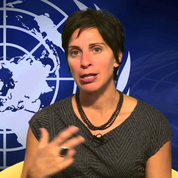Adequate and Affordable Housing
High-level Roundtables Venue: Teatro Nacional Casa De La Cultura- Habitat III Secretariat,
- United Nations Economic Commission for Europe (UNECE),
- United Nations Economic Commission for Latin America and the Caribbean (UNECLAC).
Adequate and Affordable Housing
Affordability in cities has been an increasing universal concern since Habitat II. Urban dwellers spending more than a third of their income on housing are undermined in their quality of life and subsistence, and often forced to resort to inadequate housing options that may range from peripheral isolated locations, far from job or income opportunities, to informal solutions with insecure tenure and increased vulnerabilities.
A wrong approach to housing provision, especially for the poor, are results of dysfunctional land markets and urban policies. This has exacerbated spatial segregation, while increasing slum formation, urban sprawl, and raising cost of infrastructure and basic service provision.
Adequate and affordable housing, a component of the right to an adequate standard of living, is one of the key elements of the New Urban Agenda.
The new proposed approach puts housing at the center of sustainable and inclusive urban development, encouraging housing initiatives for all income groups, especially low-income dwellers, with adequate provision of quality public space, infrastructure and basic services, ensuring spatial and socio-economic integration.
Moving beyond excessive urban zoning, the New Urban Agenda advocates for a mix of compatible uses, with special attention to the proximity factor and the strengthening of spatial relationship with the rest of the urban fabric and the surrounding functional areas. The integrated and holistic approach to housing will contribute to ending poverty and achieving inclusive urban prosperity for all. Policy and implementation strategies should include financial, regulatory, and institutional frameworks at national, sub-national and local levels.
The New Urban Agenda further suggests reliance on plurality of tenure types and adequate housing options that are safe, affordable, and accessible for members of different income groups of society, taking into consideration socio-economic and cultural integration of marginalized communities, homeless persons, and those in vulnerable situations.
This High Level Round Table session will focus on discussing concrete initiatives that can be undertaken to ensure adequate and affordable housing in the context of the implementation of the New Urban Agenda at all levels.
Guiding Questions
- How, inclusive urban and territorial planning approaches, promote well located, adequate and affordable housing?
- What should be the role of national, sub-national and local governments in policy making, financing and the execution of adequate and affordable housing? ·
- Which are the main partnerships needed to ensure adequate and affordable housing for all?
- What are specific actions or initiatives that could complement the means of implementation of the New Urban Agenda for adequate and affordable housing for all, including slum upgrading/eradication?
- How can we best avoid gentrification and ensure sustainability in housing models for the poor based on good location, quality public space, infrastructure, and service provision?


